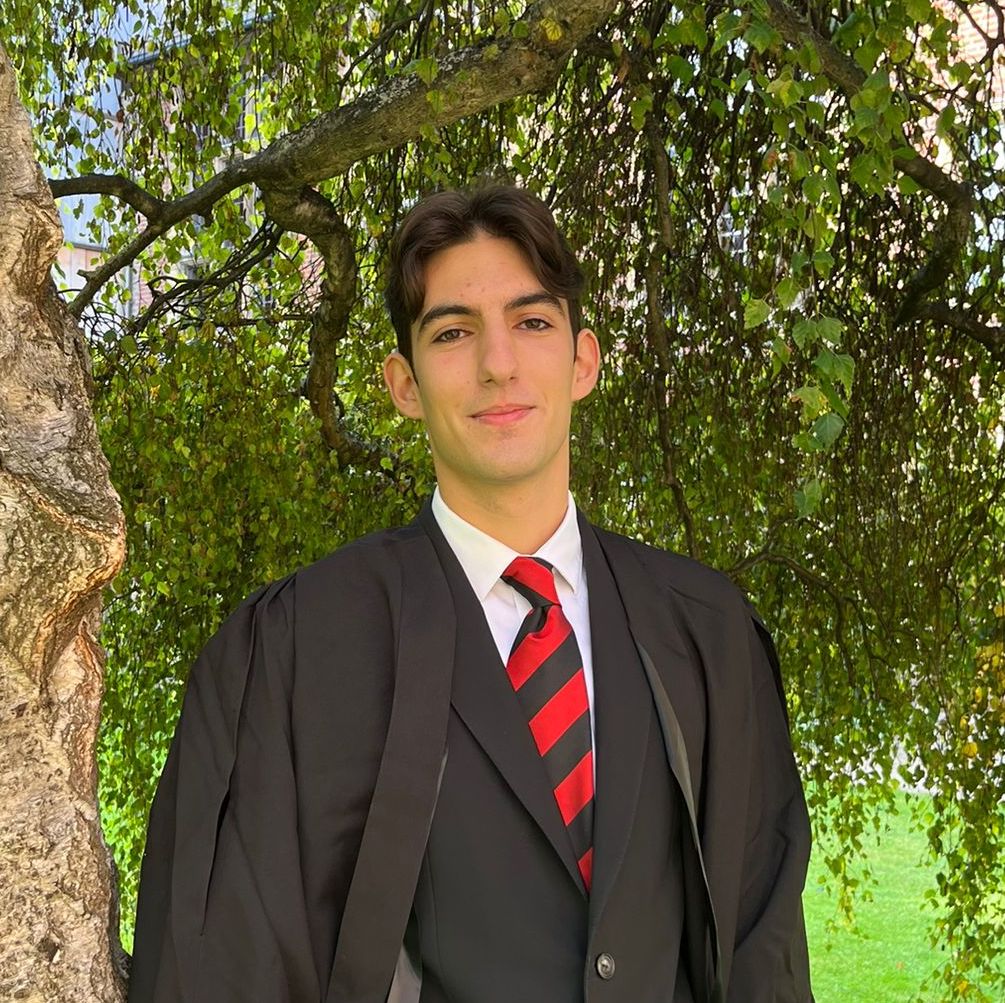
Other Interdiciplinary Incentives
Keywords
Clinical Conditions
Equipment & Techniques
Science Culture
Edoardo is an MPhil Biological Science by thesis candidate. Working in the field of computational and mathematical social neuroscience, Edoardo is formalising information-theoretic approaches and measures into the social neurosciences. Focusing on hyperscanning methods (simultaneous dual-neuroimaging or -neurophysiological recordings during social interactions), Edoardo has developed an open source module to analyse connectivity, causality, and emergence for continuous time-series data on different scales of organisation (i.e., EEG, MEG, fNIRS) — see HyperIT (https://www.github.com/EdoardoChidichimo/HyperIT). Moreover, he is developing neurobiologically plausible biophysical simulations of interacting brains to understand and model their nonrandom and nonlinear coupling. Finally, Edoardo remains deeply committed to an interdisciplinary approach to human social behaviour, continuing to combine and confront anthropological, philosophical, biological, and computational disciplinary boundaries. On this commitment, Edoardo founded the Cambridge Journal of Human Behaviour: an international, interdisciplinary journal for undergraduates. In the future, Edoardo hopes to combine computational approaches (e.g., machine learning and social network analyses) to anthropologically- and ethnographically-derived hypotheses in order to better predict and prevent violent extremism and terrorism, whilst formalising a computational social anthropology.
Modelling interpersonal coordination on various spatiotemporal scales of organisation
Interpersonal neural synchronisation
